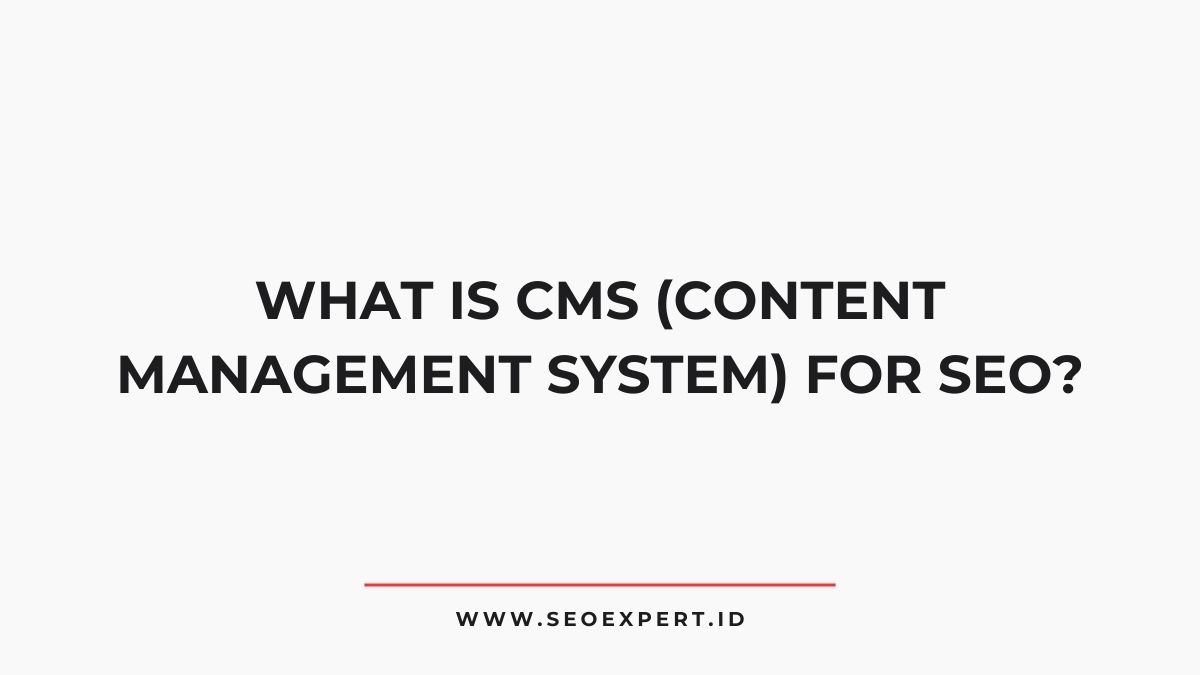A Content Management System (CMS) serves as an essential tool for optimizing websites for search engines. It simplifies content creation and management, which enhances overall efficiency.
Screpy
Utilize an AI-driven SEO analysis tool to evaluate your website and monitor your keywords all in a single intuitive dashboard.
By integrating important SEO features, such as customizable URLs, meta tags, and user-friendly interfaces, a CMS directly influences search rankings.
Additionally, choosing the right CMS can streamline ongoing optimization efforts.
Understanding these factors offers a strategic advantage for improving online visibility, leading to further insights into maximizing your site’s SEO potential.
TL;DR
Hide- A CMS simplifies content creation and management, enhancing efficiency and collaboration for SEO efforts.
- It directly influences SEO by enabling timely updates and implementing best practices like mobile responsiveness.
- User-friendly interfaces allow for easy content optimization, focusing on strategy rather than technical aspects.
- Built-in SEO features, such as meta tags and URL customization, improve search engine visibility and rankings.
- Regular updates and performance monitoring are essential for effective SEO strategies within a CMS.
Understanding the Basics of a Content Management System
A Content Management System (CMS) serves as the backbone of modern digital content creation and management. It provides users with the necessary tools to create, edit, and organize content without requiring extensive technical knowledge.
By simplifying workflows, a CMS enhances efficiency and allows for better collaboration among team members. Security features within a CMS protect sensitive data, ensuring that content remains secure from unauthorized access.
A CMS streamlines workflows, boosts collaboration, and secures sensitive content from unauthorized access.
Additionally, various CMS platforms offer customizable templates and plugins, enabling users to tailor their websites according to specific needs. This adaptability fosters a user-friendly environment, encouraging organizations to maintain consistent branding and messaging.
Understanding these foundational elements is essential for leveraging a CMS effectively, ultimately contributing to a robust online presence that prioritizes safety and user engagement.
The Role of CMS in SEO Optimization
While many factors contribute to a website’s search engine optimization (SEO) success, the choice of a Content Management System (CMS) plays a vital role in shaping its effectiveness.
A well-chosen CMS can streamline the process of content creation, ensuring that updates are timely and relevant, which is essential for maintaining search engine rankings.
In addition, a CMS can facilitate the implementation of best practices, such as mobile responsiveness and structured data, which enhance user experience and search visibility.
Additionally, a secure CMS can protect against vulnerabilities that may compromise SEO performance.
Key Features of a CMS That Enhance SEO
A robust Content Management System (CMS) is characterized by features that considerably bolster SEO effectiveness.
A user-friendly interface guarantees that even non-technical users can optimize content with ease, while seamless integration of SEO plugins provides advanced tools for keyword management and performance tracking.
Together, these elements create a strategic foundation for enhancing visibility and driving organic traffic.
User-Friendly Interface
When considering the importance of a content management system (CMS) for SEO, the user-friendly interface emerges as an essential feature that can greatly influence a website’s performance in search engine rankings.
A well-designed interface allows users to navigate seamlessly, facilitating easy content creation and management. This efficiency not only enhances user experience but also encourages frequent updates, which search engines favor.
Additionally, intuitive features enable users to optimize content elements, such as titles and meta descriptions, without technical expertise. A user-friendly CMS can empower site owners to focus on strategy and creativity, rather than grappling with complex functionalities.
Ultimately, the right interface fosters a safe environment for enhancing SEO efforts, making it a fundamental consideration in CMS selection.
SEO Plugin Integration
Integrating robust SEO plugins into a content management system (CMS) can notably amplify a website’s visibility and search engine performance.
These plugins provide essential tools such as keyword optimization, meta tag management, and XML sitemap generation, guaranteeing that content adheres to best practices for search engine indexing.
In addition, they often include analytics features, allowing users to track performance and make data-driven adjustments.
By automating technical SEO tasks and facilitating on-page optimization, these plugins greatly reduce the complexity of maintaining a search-friendly site.
Additionally, compatibility with popular CMS platforms guarantees that both novice and experienced users can implement effective SEO strategies without compromising site security or performance.
This strategic integration fosters a safer and more effective online presence.
How to Choose the Right CMS for Your SEO Needs
Choosing the right Content Management System (CMS) for SEO requires a careful assessment of key features that directly impact search engine visibility.
An effective comparison of SEO capabilities, coupled with a user-friendly interface and robust customization options, can greatly influence a site’s performance in search rankings.
Strategic selection based on these criteria not only enhances user experience but also fosters long-term SEO success.
SEO Features Comparison
How can a business guarantee its content management system (CMS) effectively supports its SEO strategy? An analytical approach to SEO features comparison is fundamental.
Key elements to evaluate include URL customization, meta tags management, and built-in SEO tools. A CMS that allows for clean, customizable URLs can greatly enhance search engine visibility. Additionally, the ability to easily edit meta titles and descriptions secures optimized search results.
Moreover, integration with analytics and performance tracking tools is essential for ongoing SEO assessment. The CMS should also support mobile optimization and offer responsive design capabilities, as these are crucial for user experience and search ranking.
User-Friendly Interface
What qualities define a user-friendly interface in a content management system (CMS) that effectively supports SEO goals?
A strategic CMS interface should prioritize simplicity, making sure users can easily navigate and manage content without extensive training. Intuitive design elements, such as drag-and-drop functionality and clear menus, enhance usability, allowing for quicker updates and optimizations.
In addition, a user-friendly CMS should offer thorough guidance, including tooltips and tutorials, to empower users in maximizing SEO capabilities.
Accessibility features, like mobile compatibility, make certain that content can be managed on various devices, catering to a wider audience.
Finally, seamless integration with analytical tools allows users to track performance metrics efficiently, guaranteeing that their SEO strategies remain data-driven and effective, fostering a sense of safety in decision-making.
Customization Options Availability
Customization options play an essential role in selecting a content management system (CMS) that aligns with specific SEO goals. A robust CMS should offer flexible customization features, enabling users to optimize their website’s structure, meta tags, and URLs effectively.
This adaptability facilitates the integration of SEO tools and plugins, enhancing site performance and visibility. Additionally, the ability to create and manage customized content types allows for tailored user experiences, which can improve engagement metrics.
Evaluating a CMS’s customization capabilities guarantees that organizations can implement unique strategies aligned with their branding and search engine requirements. Ultimately, the right CMS provides a secure foundation for ongoing SEO efforts, fostering long-term success in an increasingly competitive digital landscape.
Best Practices for Using CMS to Improve Search Rankings
Leveraging a content management system (CMS) effectively can greatly enhance a website’s search engine optimization (SEO) efforts.
To optimize SEO, users should focus on clean URL structures, guaranteeing that they are descriptive and keyword-rich. Regularly updating content is essential, as fresh information signals relevance to search engines.
Utilizing built-in SEO features, such as meta tags and alt text for images, also contributes considerably to improving rankings. Additionally, a mobile-friendly design is critical, as search engines prioritize user experience across devices.
Implementing clear navigation aids both users and search engines in accessing content efficiently. Finally, maintaining a fast site speed is crucial; slow-loading pages can deter visitors and negatively impact search rankings.
Following these best practices guarantees a robust foundation for SEO success.
Integrating SEO Tools With Your CMS
Integrating SEO tools with a content management system (CMS) can greatly streamline the optimization process, enabling users to enhance their website’s visibility with greater efficiency.
By utilizing these tools, website owners can guarantee a more strategic approach to SEO.
Key benefits include:
- Keyword Research: Identifying high-potential keywords to target in content.
- On-Page Optimization: Simplifying meta tags, headings, and image alt texts for better rankings.
- Performance Tracking: Monitoring site analytics to gauge the effectiveness of SEO strategies.
- Content Recommendations: Receiving insights on content gaps and opportunities based on user behavior.
Incorporating these tools fosters a safer, more efficient workflow that can notably improve a site’s search engine performance while minimizing risks associated with SEO missteps.
Common CMS Mistakes That Can Hurt Your SEO
While many website owners aim for ideal SEO performance, common mistakes within their content management systems (CMS) can considerably undermine their efforts.
One prevalent error is neglecting proper URL structures; poorly formatted URLs can confuse search engines and users alike. Additionally, failing to optimize images by neglecting alt tags can result in lost traffic and hinder accessibility.
Neglecting proper URL structures and image optimization can significantly hinder SEO efforts and user accessibility.
Overlooking mobile optimization is another critical misstep, as an unresponsive design can alienate mobile users and decrease search rankings. Moreover, not regularly updating plugins and themes can expose sites to vulnerabilities, affecting both security and SEO.
Finally, inadequate internal linking strategies can limit page authority distribution, impeding overall site visibility. Addressing these pitfalls is essential for fostering a robust SEO foundation.
Future Trends in CMS and SEO Integration
As technology continues to evolve, the integration of content management systems (CMS) and search engine optimization (SEO) is poised to undergo significant transformation.
Future trends indicate that this integration will prioritize user experience, data-driven strategies, and enhanced accessibility.
Key developments may include:
- AI-Powered Content Creation: Streamlining content generation while optimizing for SEO best practices.
- Voice Search Optimization: Adapting CMS features to cater to the growing use of voice search.
- Mobile-First Design: Ensuring responsive designs that improve ranking potential across devices.
- Advanced Analytics Integration: Leveraging data insights for continuous SEO performance improvement.
These trends suggest a growing synergy between CMS and SEO, ultimately fostering a safer and more efficient digital environment for users and businesses alike.
Wrapping Up
To summarize, the symbiotic relationship between a content management system and search engine optimization serves as a strategic cornerstone for digital dominance.
By selecting a sophisticated CMS that seamlessly supports SEO strategies, users can cultivate a compelling online presence.
Ultimately, staying attuned to emerging trends and avoiding common pitfalls will pave the path to perpetual progress.
The careful crafting of content through a capable CMS can transform a mere website into a powerful platform for visibility and value.








